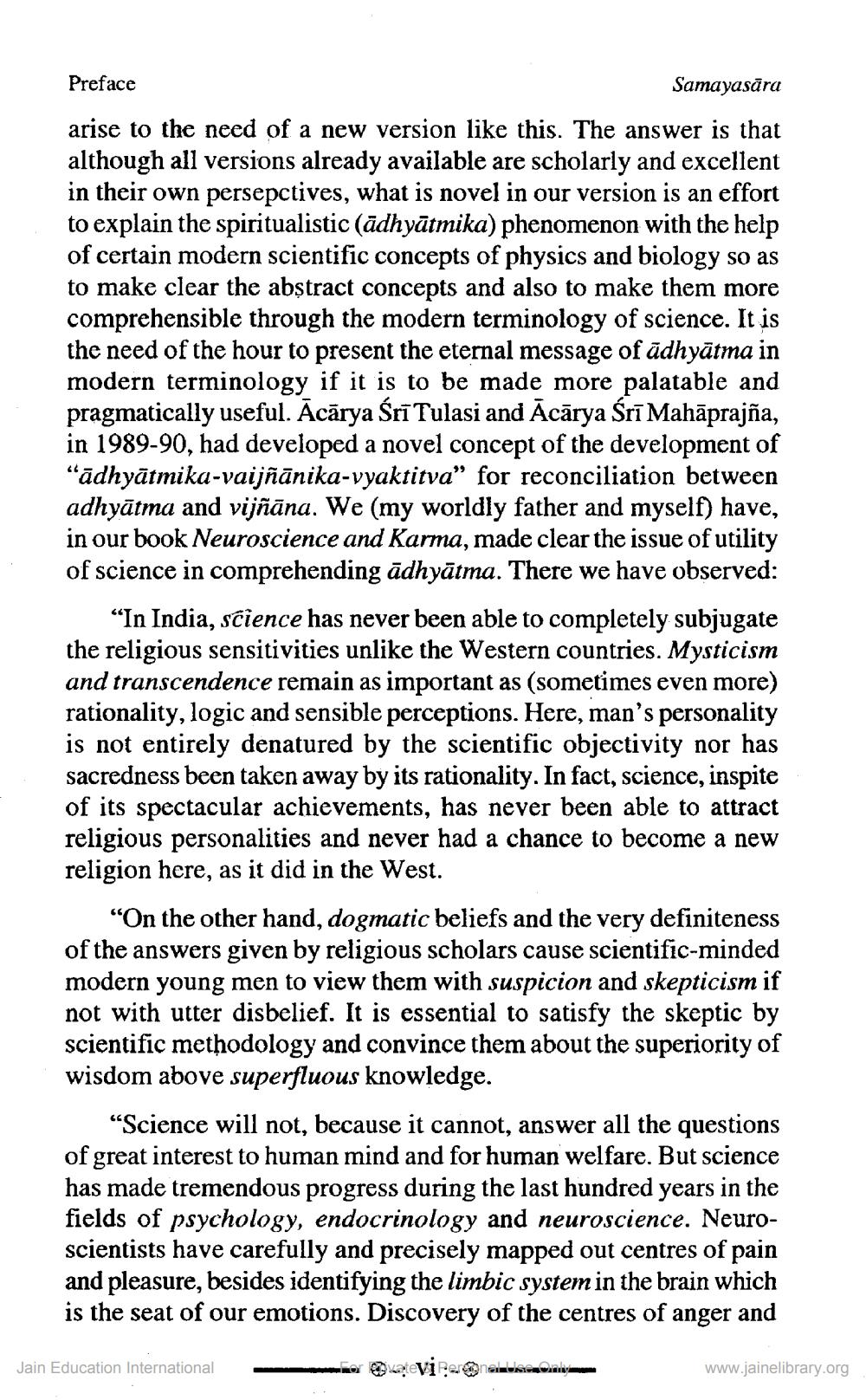Book Title: Samayasara Author(s): Kundkundacharya, Jethalal S Zaveri Publisher: Jain Vishva Bharati View full book textPage 7
________________ Preface Samayasara arise to the need of a new version like this. The answer is that although all versions already available are scholarly and excellent in their own persepctives, what is novel in our version is an effort to explain the spiritualistic (ādhyātmika) phenomenon with the help of certain modern scientific concepts of physics and biology so as to make clear the abstract concepts and also to make them more comprehensible through the modern terminology of science. It is the need of the hour to present the eternal message of ādhyātma in modern terminology if it is to be made more palatable and pragmatically useful. Acārya Śrī Tulasi and Acārya Srī Mahāprajña, in 1989-90, had developed a novel concept of the development of "adhyātmika-vaijñānika-vyaktitva” for reconciliation between adhyātma and vijñāna. We (my worldly father and myself) have, in our book Neuroscience and Karma, made clear the issue of utility of science in comprehending ādhyātma. There we have observed: "In India, science has never been able to completely subjugate the religious sensitivities unlike the Western countries. Mysticism and transcendence remain as important as (sometimes even more) rationality, logic and sensible perceptions. Here, man's personality is not entirely denatured by the scientific objectivity nor has sacredness been taken away by its rationality. In fact, science, inspite of its spectacular achievements, has never been able to attract religious personalities and never had a chance to become a new religion here, as it did in the West. “On the other hand, dogmatic beliefs and the very definiteness of the answers given by religious scholars cause scientific-minded modern young men to view them with suspicion and skepticism if not with utter disbelief. It is essential to satisfy the skeptic by scientific methodology and convince them about the superiority of wisdom above superfluous knowledge. "Science will not, because it cannot, answer all the questions of great interest to human mind and for human welfare. But science has made tremendous progress during the last hundred years in the fields of psychology, endocrinology and neuroscience. Neuroscientists have carefully and precisely mapped out centres of pain and pleasure, besides identifying the limbic system in the brain which is the seat of our emotions. Discovery of the centres of anger and Jain Education International www.jainelibrary.orgPage Navigation
1 ... 5 6 7 8 9 10 11 12 13 14 15 16 17 18 19 20 21 22 23 24 25 26 27 28 29 30 31 32 33 34 35 36 37 38 39 40 41 42 43 44 45 46 47 48 49 50 51 52 53 54 55 56 57 58 59 60 61 62 63 64 65 66 67 68 69 70 71 72 ... 336
